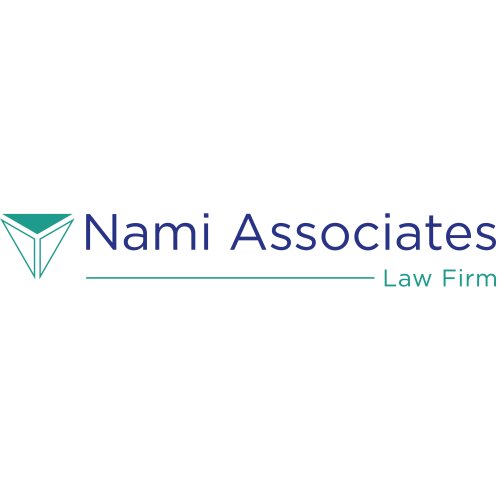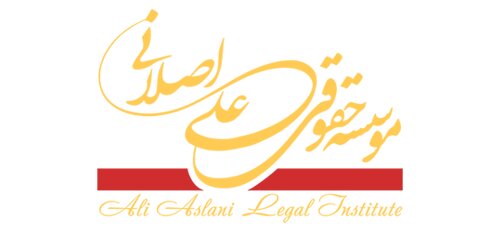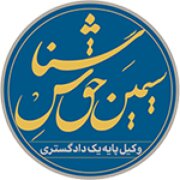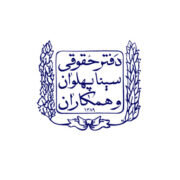Best ADR Mediation & Arbitration Lawyers in Tehran
Share your needs with us, get contacted by law firms.
Free. Takes 2 min.
List of the best lawyers in Tehran, Iran
About ADR Mediation & Arbitration Law in Tehran, Iran
Alternative Dispute Resolution (ADR) encompasses methods of resolving disputes outside the traditional court system, mainly through mediation and arbitration. In Tehran, Iran, ADR is increasingly recognized for its efficiency, privacy, and cost-effectiveness compared to litigation. Mediators and arbitrators help parties reach amicable settlements or render binding decisions without the formalities of court proceedings. The growing popularity of ADR reflects a global trend toward more flexible legal dispute resolution mechanisms.
Why You May Need a Lawyer
Engaging a lawyer experienced in ADR in Tehran can be crucial in various circumstances. Common situations include complex commercial disputes, cross-border cases, and technical disagreements requiring specialized knowledge. Lawyers also play a vital role in negotiating terms for arbitration agreements, ensuring fair representation, and guiding clients through the legal technicalities of mediation. A lawyer's expertise can help in drafting enforceable settlements and navigating procedural requirements in Iran's legal framework.
Local Laws Overview
Tehran's legal framework for ADR is underpinned by Iran's Civil Procedure Code and various arbitration laws, which provide the regulatory foundation for mediation and arbitration. Key aspects include the recognition and enforcement of arbitral awards, standards for selecting neutral mediators/arbitrators, and procedures for resolving disputes. Iran is also a signatory to the New York Convention, which facilitates the recognition of international arbitral awards. Understanding these local laws helps ensure that ADR proceedings are conducted in compliance with the applicable regulations.
Frequently Asked Questions
What is the difference between mediation and arbitration?
Mediation is a collaborative process where a neutral third party helps the disputing parties reach a mutually acceptable solution, while arbitration involves a neutral arbitrator making a binding decision after evaluating the evidence and arguments.
Are ADR decisions legally binding in Iran?
Arbitration decisions are typically binding and enforceable under Iranian law, while outcomes from mediation require mutual consent from the parties to become enforceable agreements.
Can ADR be used in all types of disputes?
ADR can be used for a wide range of disputes, including commercial, labor, family, and property matters, although some cases may still require court intervention.
Is it mandatory to have a legal representative in ADR proceedings?
While it's not mandatory to have a lawyer, legal representation can provide significant advantages in understanding the intricacies of the process and ensuring a fair outcome.
How long does the ADR process take?
The duration can vary significantly, but ADR processes are generally quicker than traditional court proceedings, often resolving disputes in a matter of weeks or months.
What is the role of an arbitrator?
An arbitrator acts similarly to a judge, reviewing evidence and arguments from both parties to make a binding decision based on the merits of the case.
How do I ensure impartiality in the ADR process?
Parties can ensure impartiality by agreeing on the selection of a neutral mediator or arbitrator with no conflicts of interest related to the dispute.
What costs are associated with ADR?
Costs in ADR typically include fees for the mediator or arbitrator and any necessary legal representation, which are often lower than court litigation costs.
Can I appeal an ADR decision?
Appeals are generally not available for arbitration decisions but may be possible in limited circumstances if procedural issues or biases are detected.
How is ADR initiated?
The ADR process can be initiated by mutual agreement of the parties involved, often stipulated in contracts or initiated post-dispute through bilateral consent.
Additional Resources
For those seeking further information or assistance, contacting the Iranian Arbitration Center, Tehran Chamber of Commerce, or seeking guidance from local legal associations specializing in ADR can be beneficial. Additionally, resources like the International Chamber of Commerce (ICC) offer valuable information on international arbitration standards.
Next Steps
If you believe that ADR is an appropriate course of action for your dispute in Tehran, it is advisable to consult with an experienced legal professional specializing in mediation and arbitration. They can provide tailored advice, help draft necessary documents, and represent your interests effectively throughout the ADR process. Starting with an initial consultation can clarify the next practical steps, including the selection of appropriate mediators or arbitrators and outlining a strategic approach to your case.
Lawzana helps you find the best lawyers and law firms in Tehran through a curated and pre-screened list of qualified legal professionals. Our platform offers rankings and detailed profiles of attorneys and law firms, allowing you to compare based on practice areas, including ADR Mediation & Arbitration , experience, and client feedback.
Each profile includes a description of the firm's areas of practice, client reviews, team members and partners, year of establishment, spoken languages, office locations, contact information, social media presence, and any published articles or resources. Most firms on our platform speak English and are experienced in both local and international legal matters.
Get a quote from top-rated law firms in Tehran, Iran — quickly, securely, and without unnecessary hassle.
Disclaimer:
The information provided on this page is for general informational purposes only and does not constitute legal advice. While we strive to ensure the accuracy and relevance of the content, legal information may change over time, and interpretations of the law can vary. You should always consult with a qualified legal professional for advice specific to your situation.
We disclaim all liability for actions taken or not taken based on the content of this page. If you believe any information is incorrect or outdated, please contact us, and we will review and update it where appropriate.
















